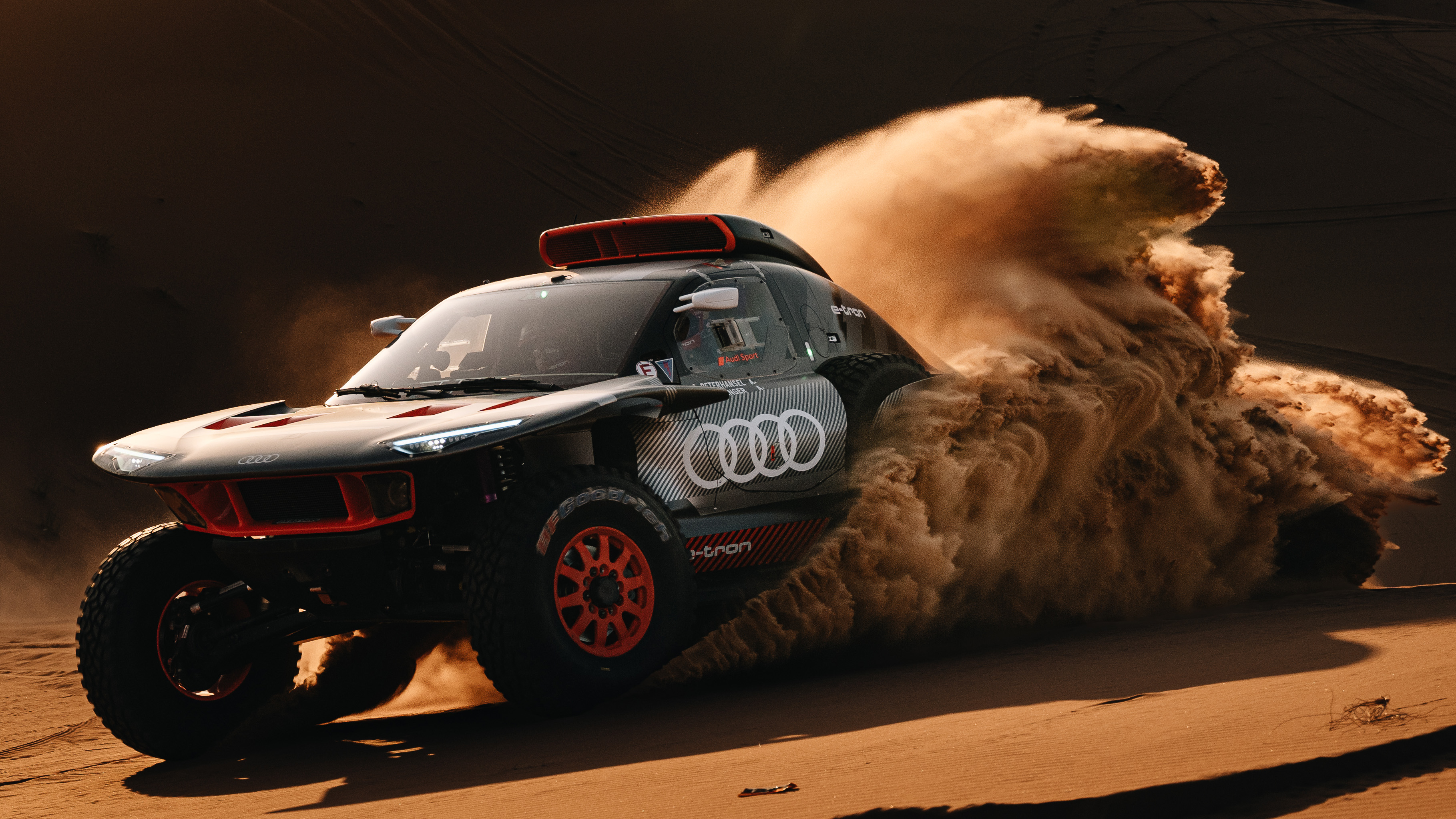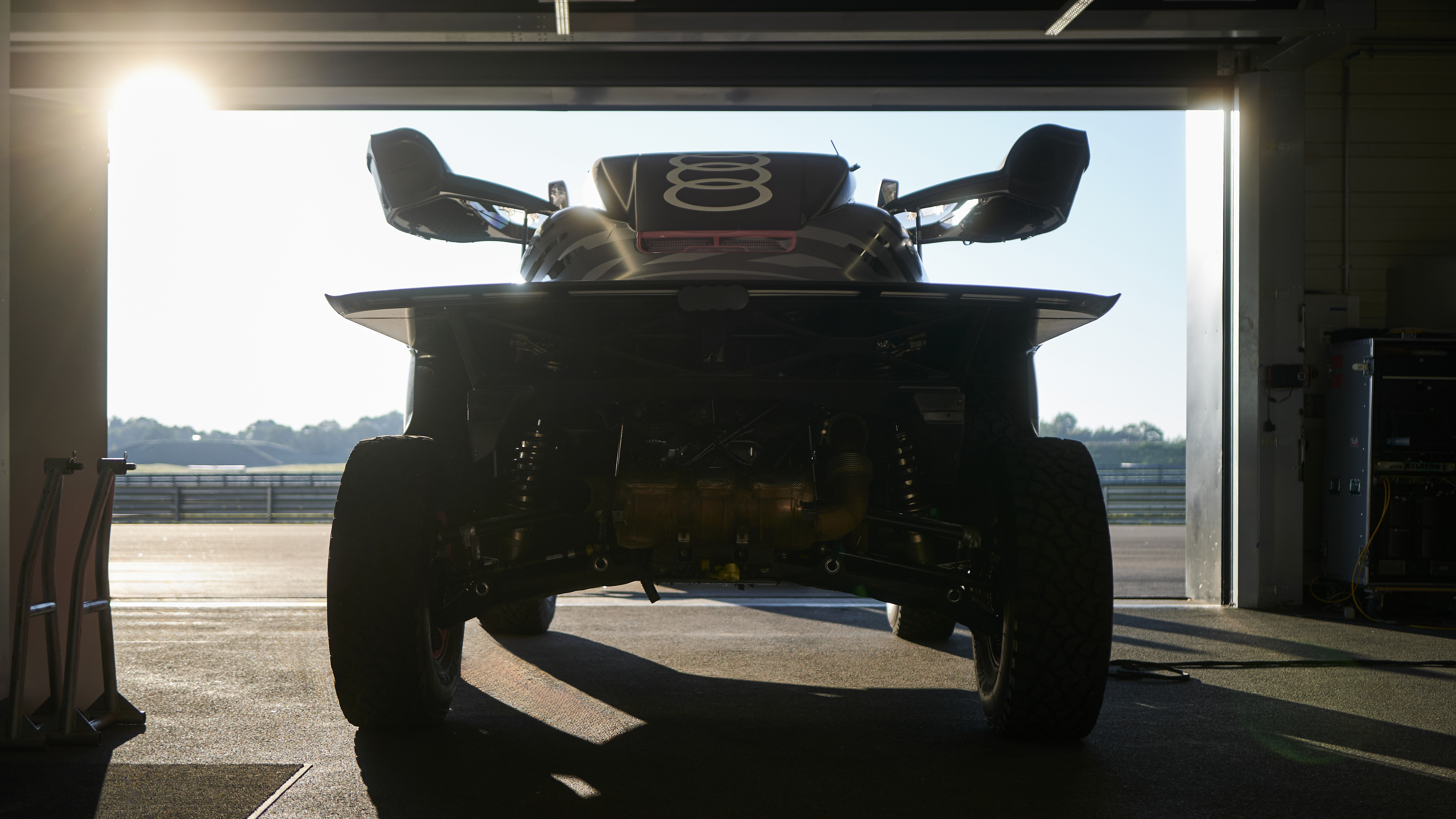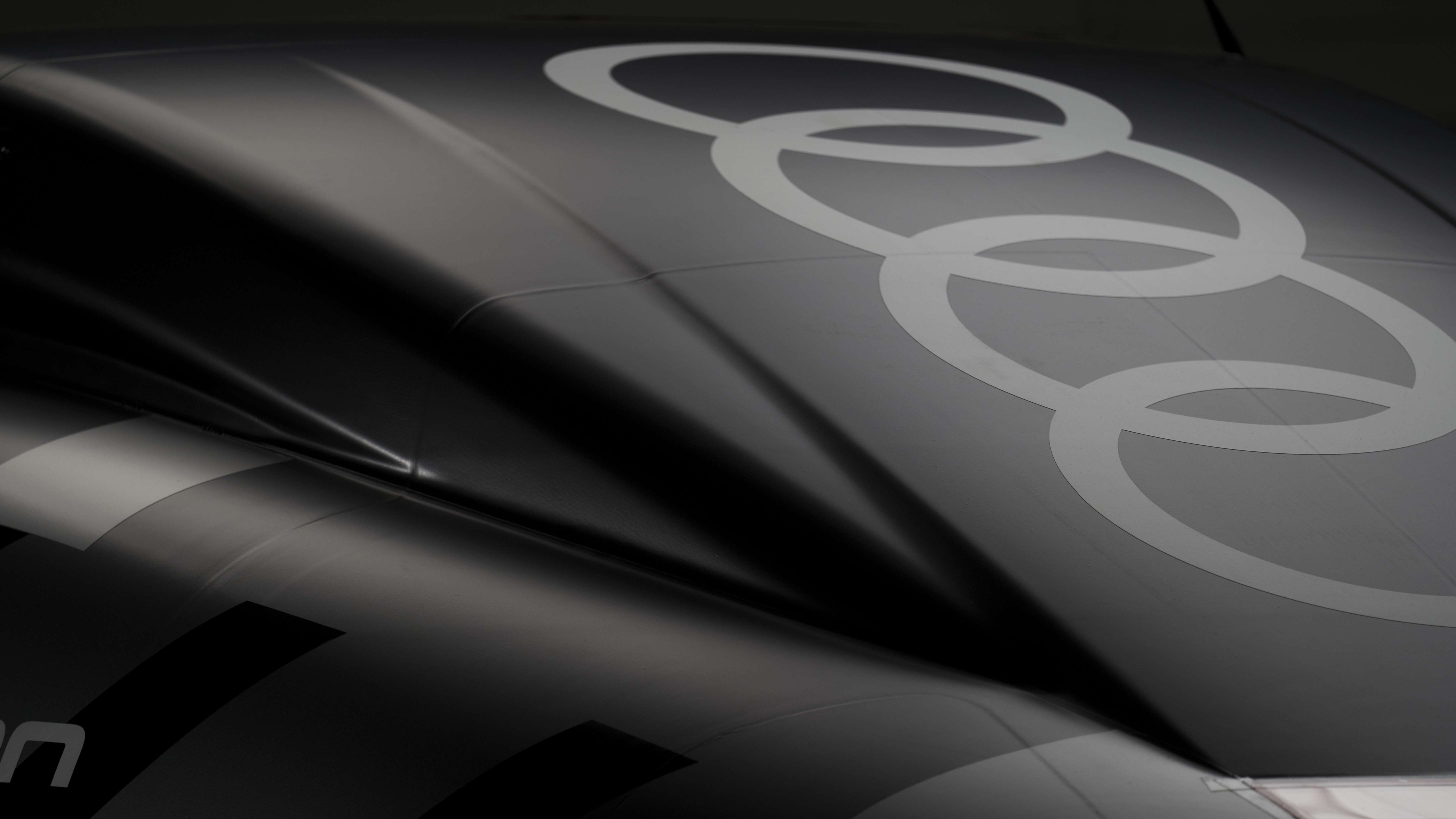
Meet the safer, comfier 2024 Audi RS Q e-tron
The Dakar Rally is the perfect development ground for a car. And Audi’s learnings have made for some clever upgrades for its new desert racer
It’s only natural that Dakar competitors will tweak and improve their car each year. For Audi Sport, the 2023 Dakar Rally’s tough challenges proved the perfect framework for developing the pioneering RS Q e-tron yet further.
While all three Audis finished the firm’s first Dakar in 2022, just one made it to the end of its second. Not through lack of performance or reliability, but due to the biggest occupational hazard of such a vast, sprawling rally raid: crashes.
So is the car safer now?
Yep. But the world of motorsport isn’t a place you can throw a few more airbags and lane-keep assist. Not least because sand dunes tend not to be blessed by road markings. Instead, Audi has tweaked the RS Q e-tron’s springs, dampers and chassis bump stops to allow its dramatic landings from barely plausible jumps to be, well, less dramatic.
The carbonfibre-reinforced plastic crash box at the front of the chassis is also longer to better soak up any unintended impact, albeit without compromising the crucial ‘angle of attack’ that off-road racers must prioritise for climbing and descending obstacles without chamfering off their own bodywork. Or getting stuck. Even the foam in the seats has been changed for better coddling of the driver and navigator during the rough ’n’ tumble of rally raiding. Which, given they’re racing off-road, across every type of terrain, for two weeks solid – is pretty rough ’n’ tumble-y.
You mean they’ll be comfier?
That’s certainly been in the engineers’ minds. The e-tron’s cockpit, while still a long way from the luxury of its roadgoing namesakes, now comes with stronger sound deadening while a new front bonnet better repels mud and water, helping keep the windscreen clearer to aid the driver’s visibility.
More robust rims are among a handful of seemingly minor changes that ought to help avoid lengthy wheel changes caused by the damaging effects of stones getting stuck between the rim and brake disc, alleviating stress and strain amidst the Dakar’s punishing schedule.
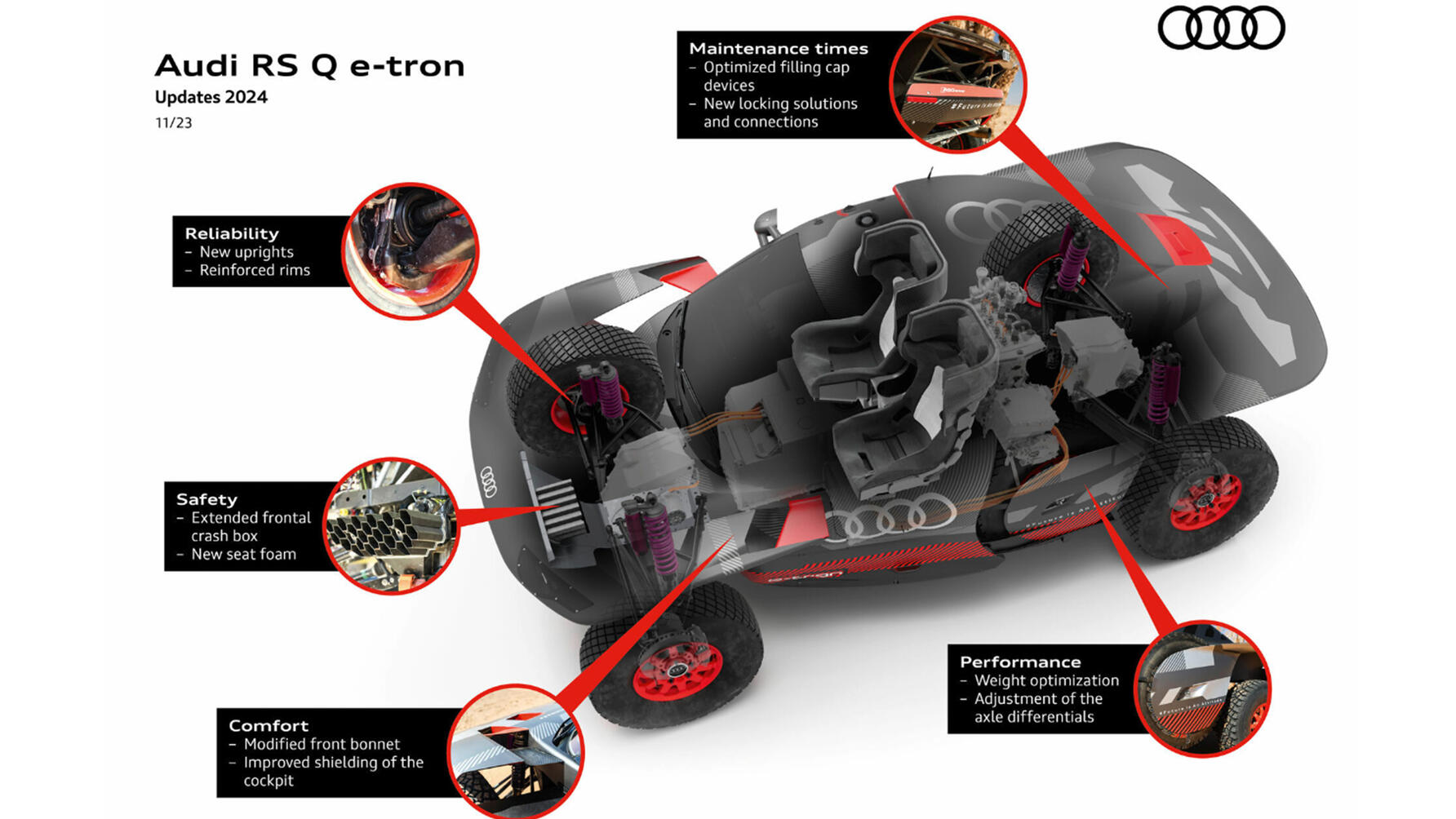
Is the RS Q e-tron any faster?
Power output is dictated by the Dakar rulebook, but it does allow the trio of electric motors on board the RS Q e-tron to sing a little louder this year. There’s been a rise in peak output from 263 to 286kW (or 384bhp) being sent to all four wheels with a 2-litre, DTM-honed four-cylinder turbo petrol engine still on generating duties. AKA keeping the battery of the car topped up so that those e-motors can carry on as the sole propulsion source at the wheels. It’ll hit 62mph in under 4.5secs (even on loose surfaces) on its way to a 106mph top speed, limited for reasons that are presumably obvious if you’ve had even a slight glimpse of Arabian Desert terrain.
Audi Sport has worked hard to nudge the regulated 2,100kg minimum weight figure as closely as possible, too, all to ensure that peak power figure punches as hard as possible. Mass has been neatly shaved from the rear bonnet and co-driver’s footrest while there are smaller brake calipers. Details matter.
“What the RS Q e-tron is fundamentally capable of has been demonstrated by our drivers and co-drivers with six stage victories and 22 other single-day podium results at the Dakar Rally since 2022,” says Rolf Michl, Head of Audi Motorsport. “Now it’s a matter of showing our performance as steadily as possible so that we can fight for top positions.
“Our engineering team has improved the car even further with many creative solutions,” he continues. “Drivers and co-drivers, as well as the mechanics and engineers, benefit from our imaginative ideas. We feel that we are prepared for the Dakar Rally in the best possible way.”
For more Audi performance stories, head this way
*This vehicle shown here is the Rally Dakar vehicle that is not available as a production model. Closed course, professional driver. Do not attempt. The Audi RS Q e-tron combines an electric drivetrain with an energy converter system comprising a TFSI engine and generator.
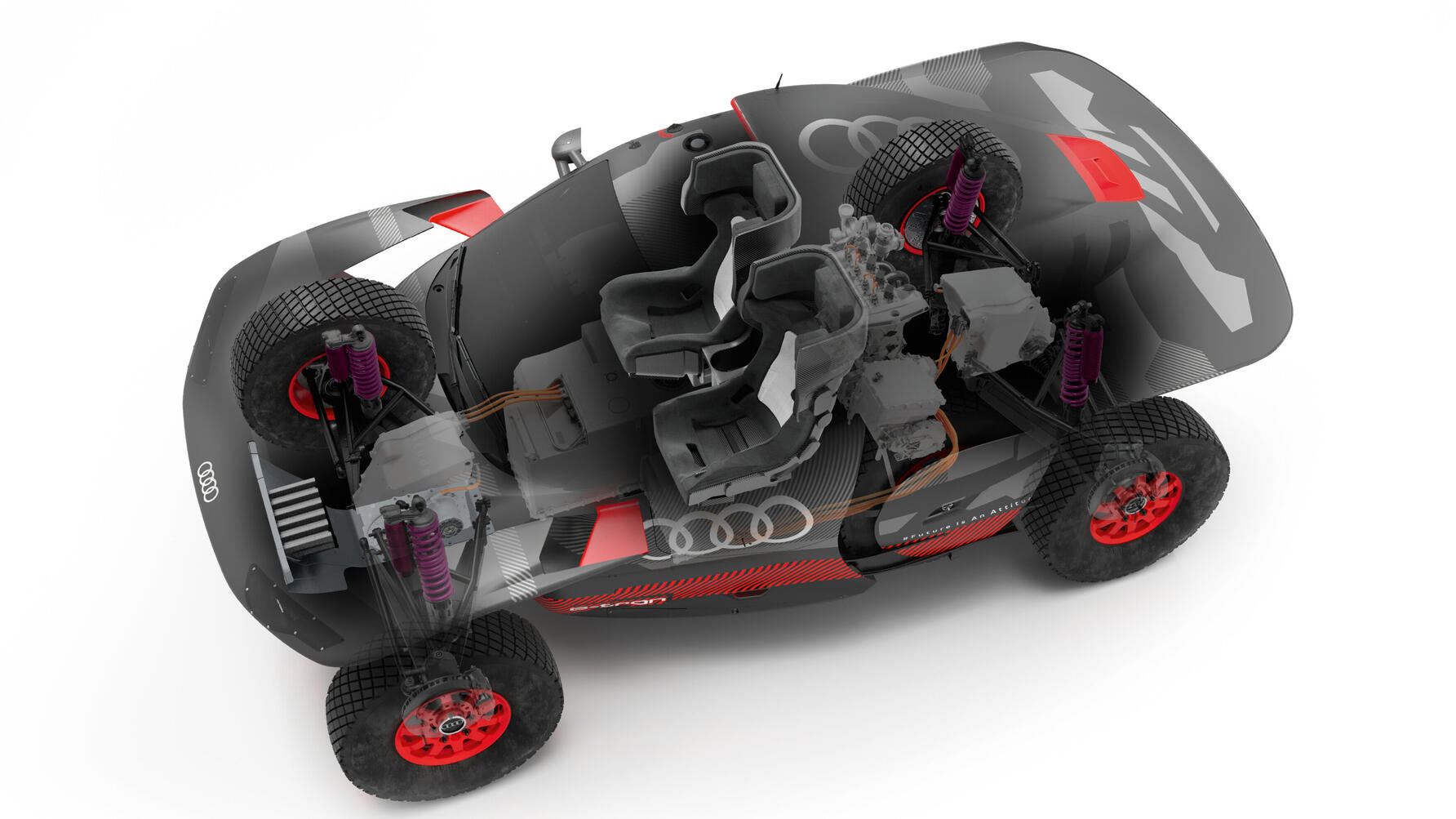
Featured

More from Top Gear
Trending this week
- Car Review
BMW iX3





